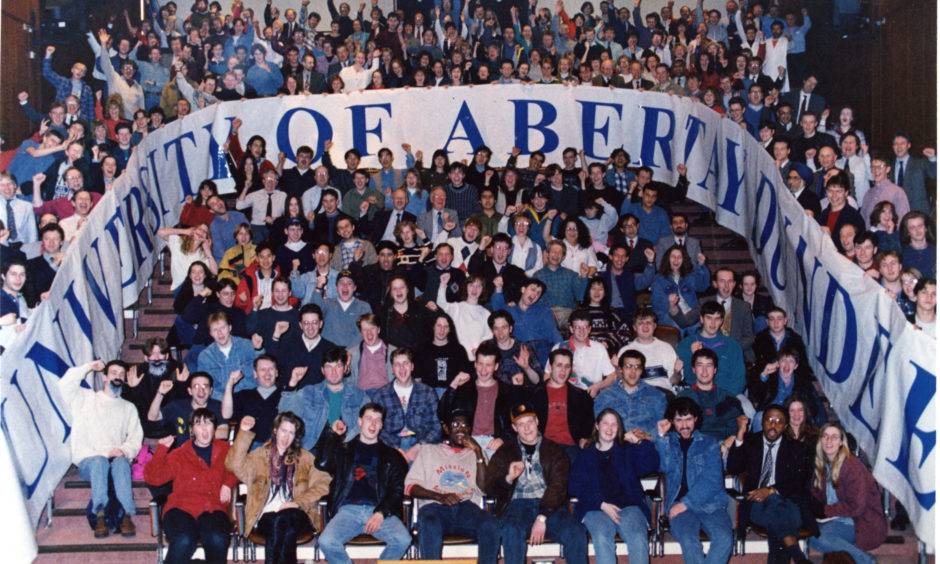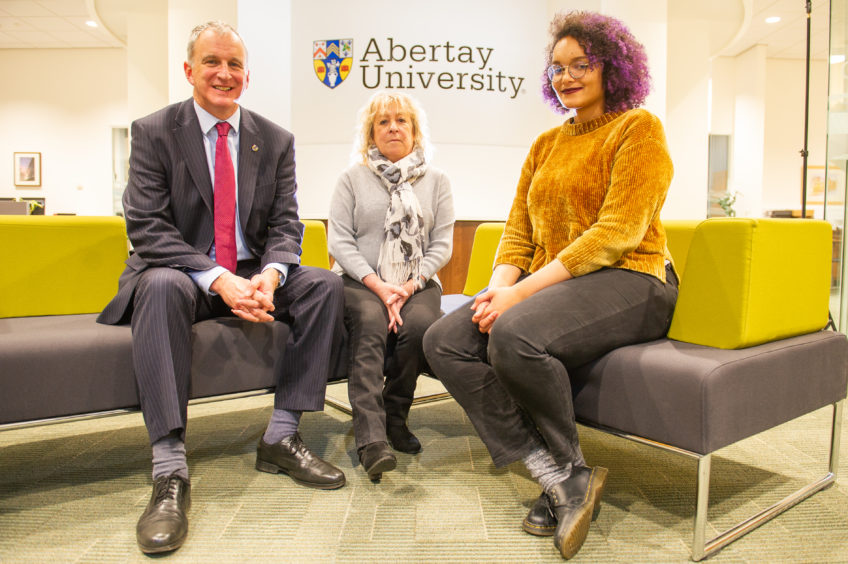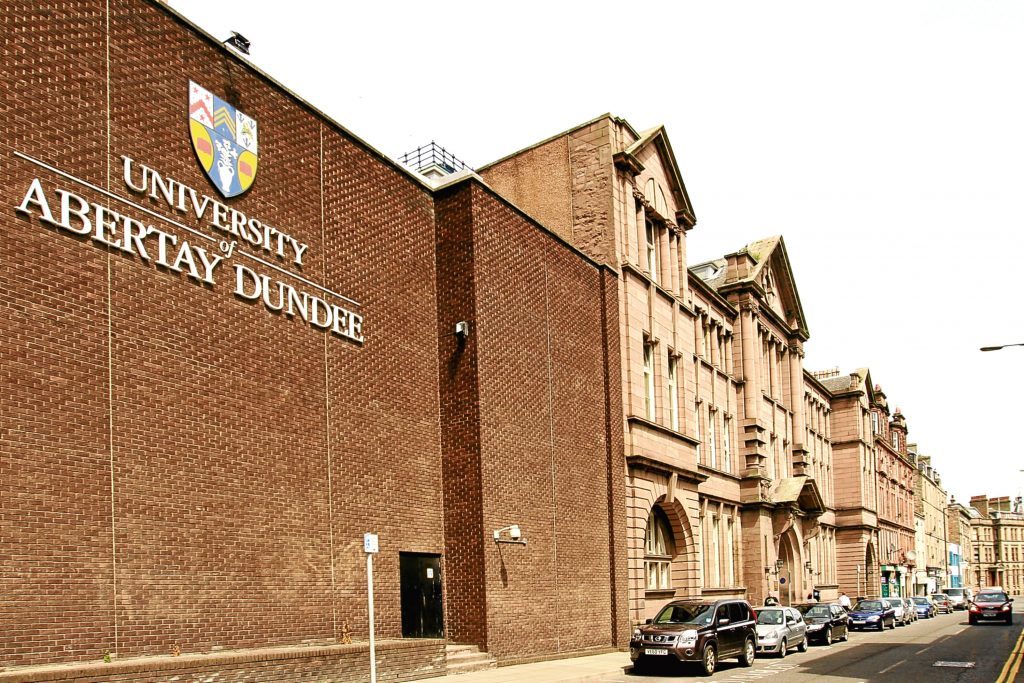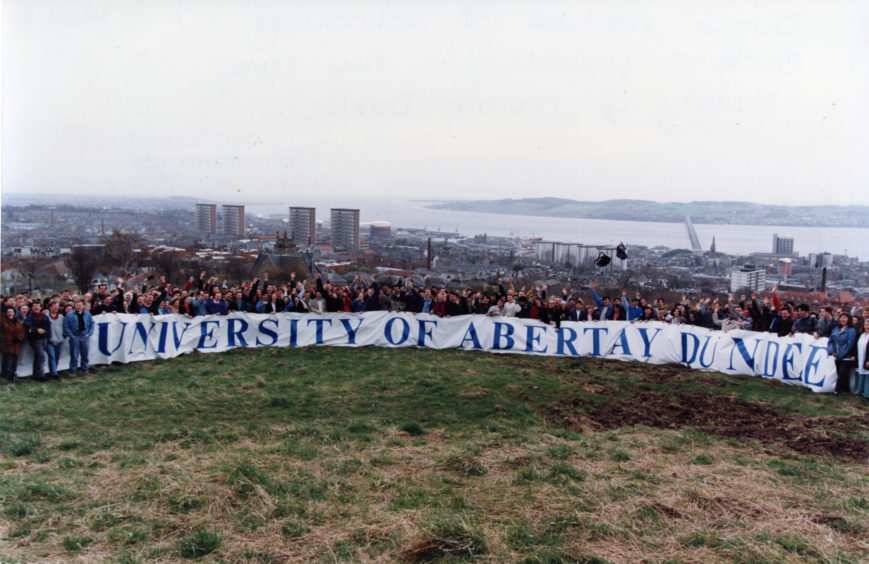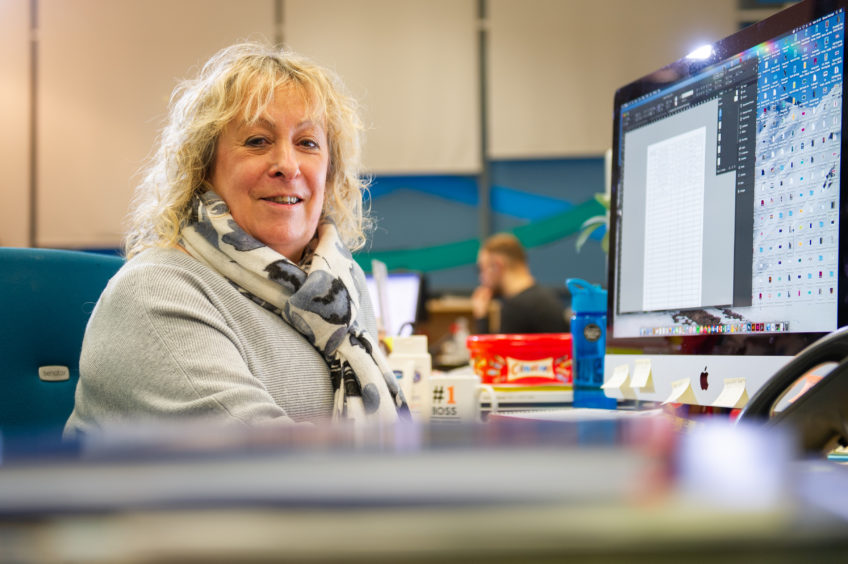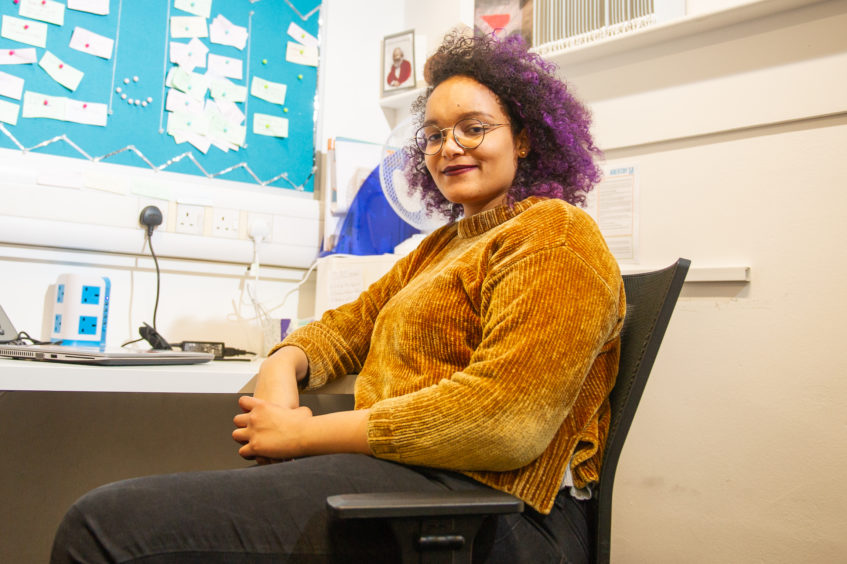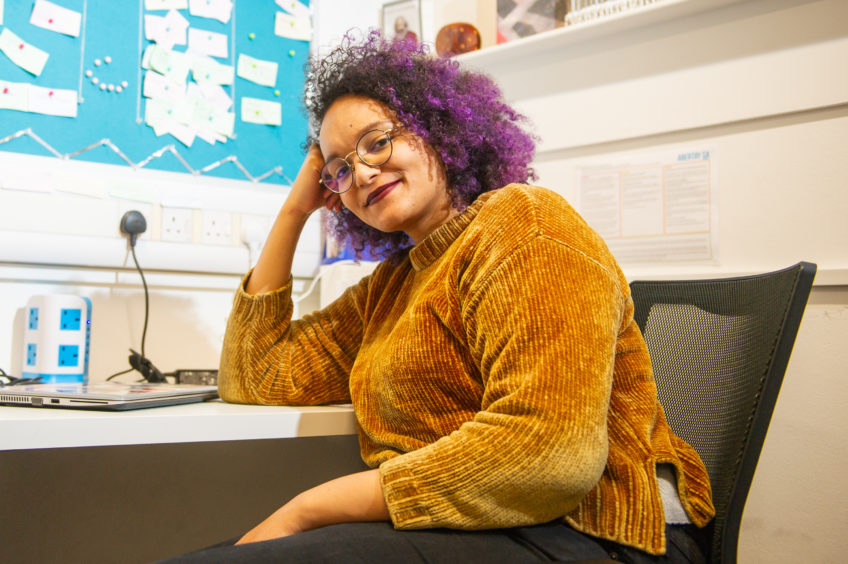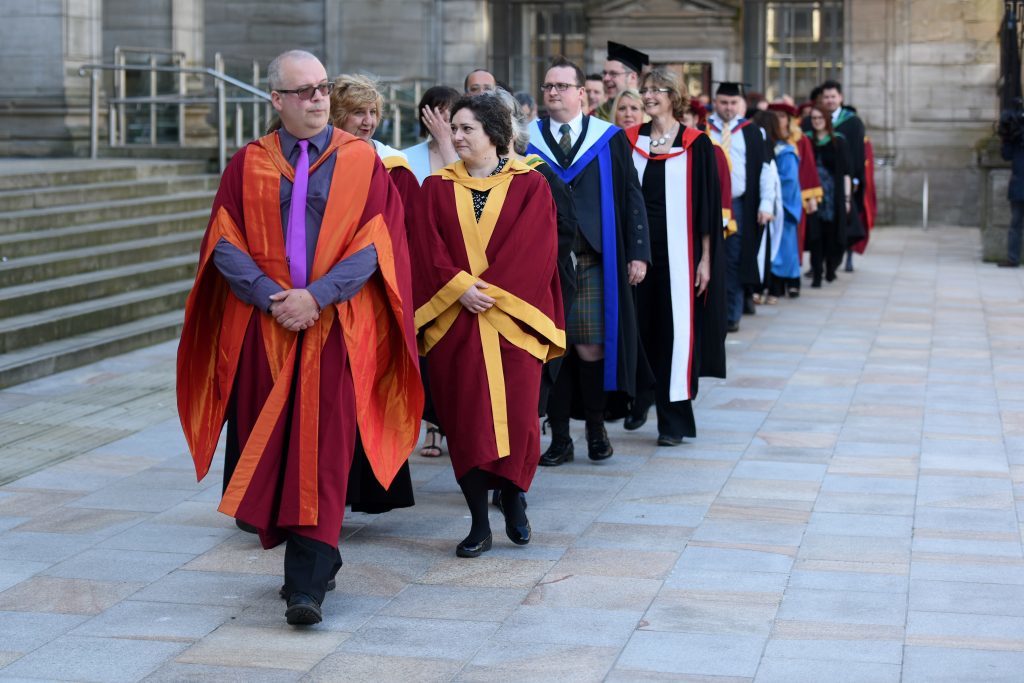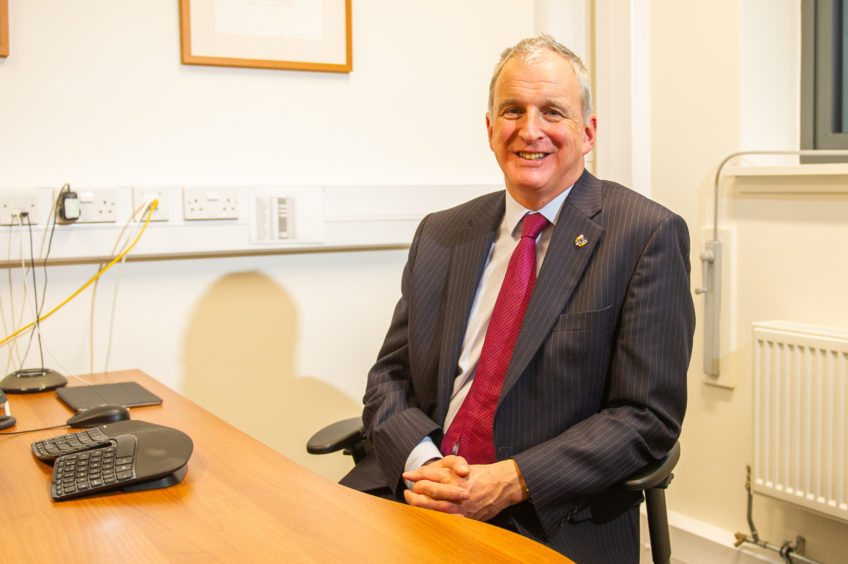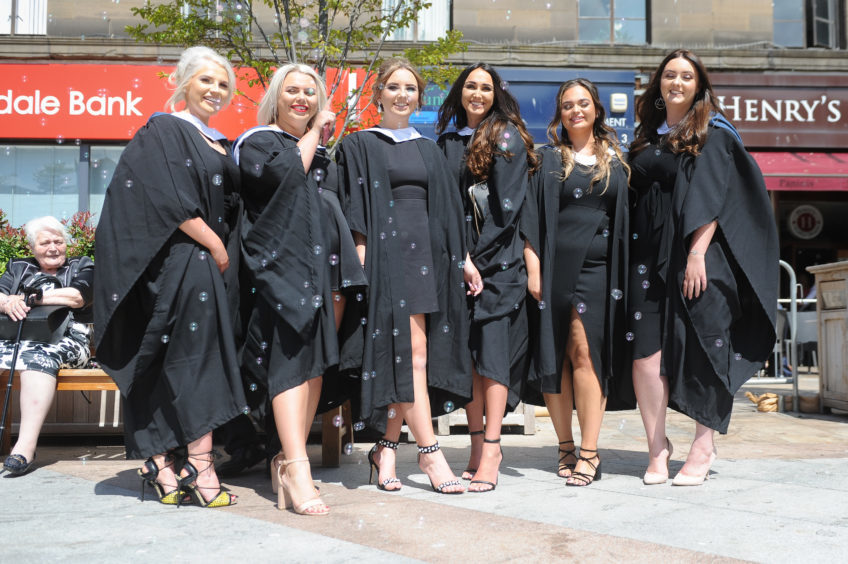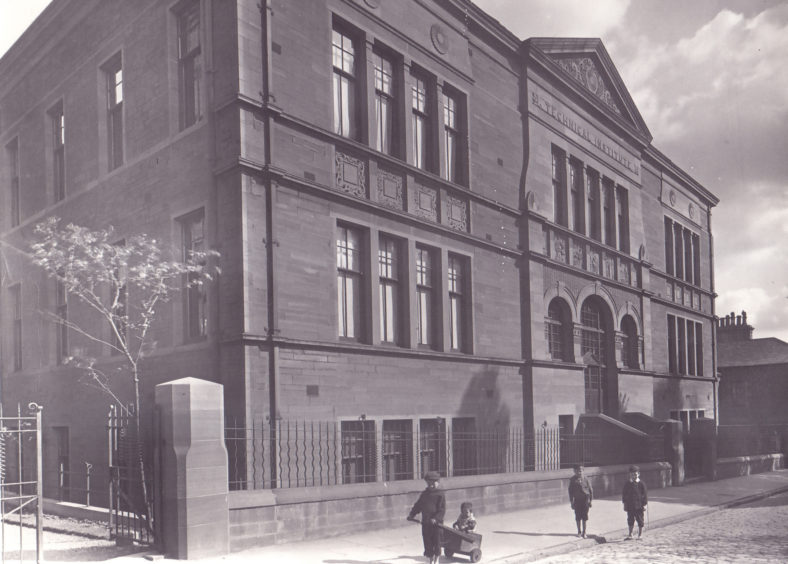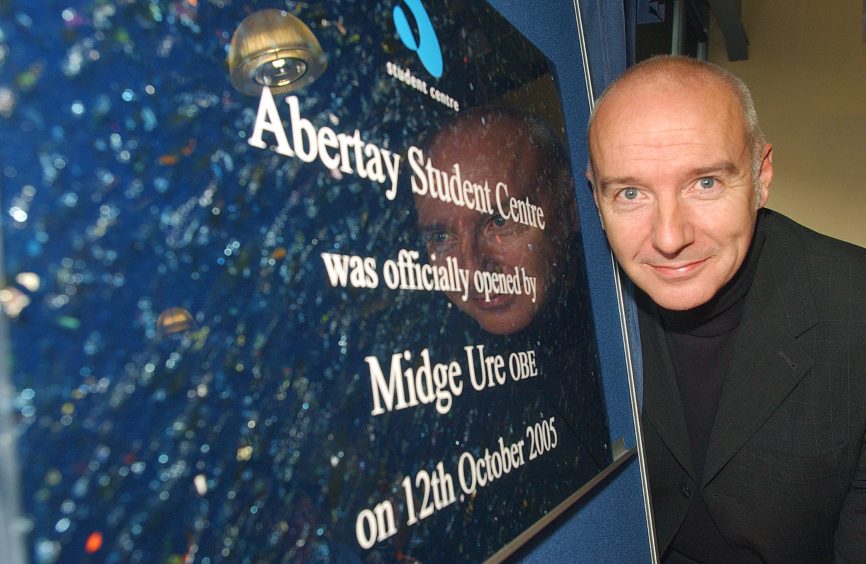Michael Alexander speaks to staff and students about the 25th anniversary of Abertay University in Dundee and finds out why they feel the institution’s future is bright.
It was the day that Indonesia celebrated the 49th anniversary of its independence from Japan, the day that Wet Wet Wet marked the 11th week of what would be a 15-week run at the top of the charts with their version of Love Is All Around, and the day that Hollywood actor Robert De Niro celebrated his 51st birthday.
But closer to home, Wednesday August 17, 1994 is more likely to be remembered as the day that the former Dundee Institute of Technology – or ‘Bell Street Tech’ as it was affectionately known – officially became Abertay University.
The 25th anniversary of Abertay being awarded university status has seen a variety of events held this year charting its journey from an early 1990s world of mainframe computers and punched card systems to its development and growth as a world leader in specialist fields such as computer games.
Now as the celebratory year draws to a close, The Courier has asked various Abertay staff and students to reflect on their experiences of the institution and talk about their hopes and aspirations for the university’s future.
Liam Wong, who graduated with a BA Computer Arts in 2010, became the youngest ever art director at Ubisoft, the company behind blockbuster franchises such as Far Cry and Assassin’s Creed. He’s now a highly regarded photographer and freelance art director.
He said that Abertay had been instrumental to his career.
“I’m now working on freelance projects across photography, games and film,” he said. “Most recently I collaborated with CD Projekt Red on Cyberpunk 2077.
“Everything I know about working in teams, leadership, planning, presenting work and giving direction was picked up from my experience at Abertay. It also helped me learn my strengths, weaknesses and the things that interest me.
“Everyone was really approachable. I’m always happy to return to the university and Dundee to see what’s new.”
Liam’s recently published debut photo book TO:KY:OO became the most crowdfunded book in the UK, raising more than £140,000 – over four times its original target.
He’s hoping to use his skills to branch into a new industry, although he says he’ll never leave gaming behind.
He added: “In the next few years I’m planning to venture into film for the first time, that really interests me.
“I’m working on a game with friends at the moment and I’m looking to release that in the future, while also continuing with my art and photography projects.
“I do set myself goals of things I’d like to achieve, but as a creative I do believe in things developing organically.
“As far as creativity goes, Abertay has produced many success stories. Over the years I’ve bumped into many graduates working on amazing things.
“There has been great success from students forming companies, and I look forward to seeing this continue.”
Abertay began life as Dundee Technical Institute in 1888, with a particular focus on preparing students for the world of work.
The push for university status began in 1991, when UK Government policy to increase the number of students in higher education created opportunities for tertiary education institutions to become universities.
An initial attempt to become a university in 1992 failed on the grounds that the college – which was by that time called Dundee Institute of Technology (DIT) – was too small. This led to DIT launching a PR campaign to bring the student roll up to the 4000 required to gain university status.
By early 1993, DIT had almost achieved the required figure and on August 17 1994, it officially became the University of Abertay Dundee.
One woman who remembers that period very well is Fife woman Shona Norman, who started work at DIT in 1988 as a reprographics technician and is now Abertay University’s graphic design manager.
The 58-year-old Duncan of Jordanstone College of Art and Design graduate, who grew up in Pitscottie, near Cupar, runs a small team that produces all the materials for student recruitment.
“When I first started here there were no computers,” she said. “It was light boxes and stuff like that.”
While technology changed and her role changed with it, she doesn’t remember many immediate changes when Abertay University first launched.
However, as time went on and the institution became more popular, the work started to “ramp up”.
“The way I perceived it was I think it made it a more prestigious place to work rather than it being the institute of technology,” she said. “It was a university so it sounds better!
“Obviously in those 25 years people change all the time. The physical building has changed a huge amount. The library wasn’t there. The merging of departments, the movement of other departments, the changes in school names and things have changed three or four times since I’ve been here.
“But because it’s a small compact little university I find it’s a bit more friendly and community based.”
This year Abertay had another reason to celebrate when its video games degrees were ranked as the best in Europe for the fifth year running.
Abertay was ranked top in the prestigious annual The Princeton Review with the site rated number one in Europe for undergraduate level game courses. It also broke into the top 10 in the world for postgraduate courses, according to the study.
It was this world class reputation that attracted Abertay’s current students’ association vice-president Safya Devautour to apply for the university’s prestigious Game Design and Production degree.
The 20-year-old Paris-born French diplomat’s daughter was four-years-old when she first played the computer game Lemmings at home in France on her father’s old iMac computer.
She was delighted to learn it had been created in Dundee when she applied for and was accepted on to the renowned computer games course in 2017.
“It was mostly Abertay’s reputation for video games that brought me here – I knew I wanted to be at Abertay,” said Safya who, as a self-confessed “child of the world”, immediately felt “at home” in Dundee.
“When I arrived it was the first time in my life I had been to an English-speaking country.
“I still remember the first day I was in Dundee I saw this big banner that said ‘20 years of computer games’ at Abertay. I think this was such a good sign.
“I really liked the city. My first impression was that the people were so nice, so open. For me it’s the perfect city because it’s not too big, big enough to do interesting cultural things, and feels like it’s a human size while at the same time not too far from the beach, from big cities, and the river is amazing.
“But whilst I have been interested in programming from a young age, I also have a strong interest in political science and literature.
“Abertay has enabled me to modules on sociology and politics. Also, because it’s a small institution we have that good contact with lecturers and services. I feel the university cares about the students and I feel privileged to be here.”
Safya also feels “privileged” to be vice president of the students’ association and would encourage other students to apply for a similar sabbatical role.
“The biggest campaign I’m working on at the moment is mental health,” she said.
“Of course Abertay has a great counselling service. What I wanted to do was provide extra steps for students to access and improve their mental health. Prevention work. For example we have just got a small grant from the NUS to organise a self-help workshop.”
Abertay University Principal Professor Nigel Seaton told The Courier said the 25th anniversary was an “important milestone” in a history dating back to 1888.
“The story of Abertay University over the last 25 years is one of both continuity and change,” he said.
“The continuity is in our focus on our students, and on preparing them for the world of work. Our commitment to providing social mobility through university education is every bit as strong as it was in 1888, and we are a leader among Scottish universities in widening access to higher education. And of course we remain part of the fabric of our city.”
Professor Seaton said there have been many changes. Abertay’s student body is much more international, while most of their students still come from Dundee or nearby. He said Abertay was working in partnership with colleges in Scotland, notably Dundee and Angus College and Fife College.
They are also working with colleges, universities and companies around the world, giving broader access to an Abertay education whilst using research to support industry and commerce, and society more generally.
“The subjects we teach have changed, and continue to do so,” Professor Seaton added. “We are very proud to have created computer games as an academic discipline, having launched the first computer games degree in 1997 to support the emerging computer games industry in Dundee.
“Abertay remains the leading university outside North America in this important and competitive field. Other subjects have come to the university, and a few have gone, as we have responded to the interests of our students and to the needs of industry.
“My colleagues and I, and our students, are very proud of what we have achieved as a university over the last quarter of a century, and we look forward to the next 25 years.”
HISTORY TIMELINE
15 October 1888 – Dundee Technical Institute founded offering training in arts, science and textiles
1906 – Bell Street site purchased for £14,000
1909 – First classes commence at Bell Street campus including navigation and marine engineering
1911 – Name changed to Dundee Technical College and School of Art – watchmaking, lithography, mechanical and electrical engineering on offer
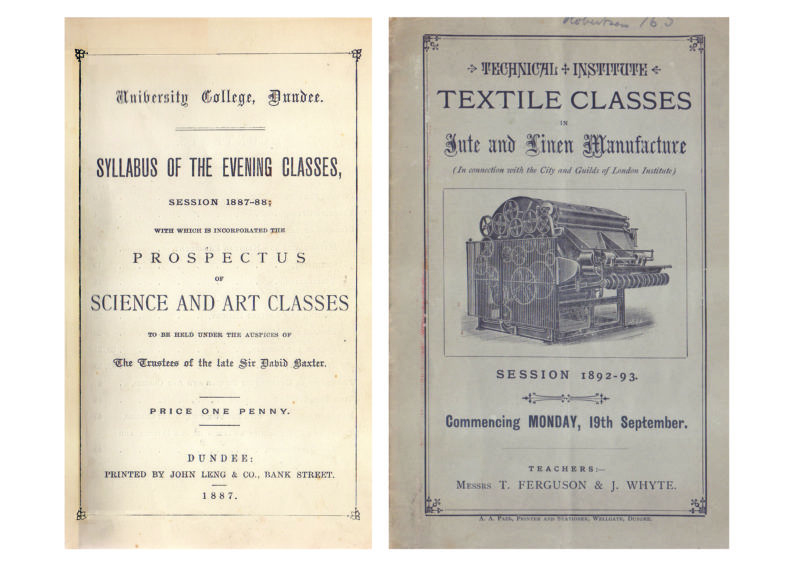 1933 – Name changed to Dundee Institute of Art & Technology
1933 – Name changed to Dundee Institute of Art & Technology
1953 – Coat of arms recorded on public register
1966 – First computer comes to Bell Street campus – an Elliot 4100
1975 – Name changed to Dundee College of Technology. The School of Art separates to become Duncan of Jordanstone.
1988 – Name changed to Dundee Institute of Technology on 100th anniversary. Courses include management, IT, civil engineering, electrical and electronic engineering, mechanical engineering, business studies, commerce, computer studies, nursing, health visiting
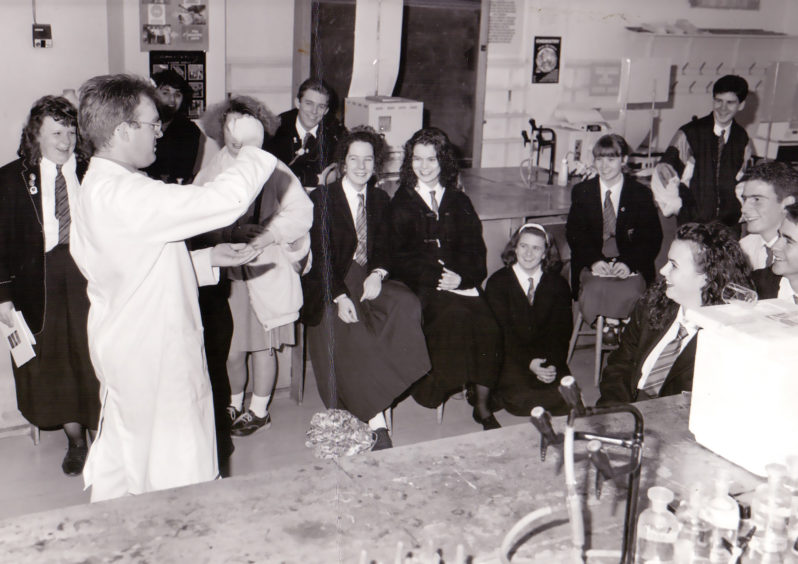 1994 – UNIVERSITY STATUS GRANTED. Name changed to University of Abertay Dundee. Courses include biotechnology, business, computing, construction, marketing, midwifery, nursing, optoelectronics, quantity surveying, software engineering, wastewater and environmental management
1994 – UNIVERSITY STATUS GRANTED. Name changed to University of Abertay Dundee. Courses include biotechnology, business, computing, construction, marketing, midwifery, nursing, optoelectronics, quantity surveying, software engineering, wastewater and environmental management
1997 – Abertay launches the world’s first computer games degree
1998 – The Queen officially opens the Bernard King Library. Courses include accountancy, bioinformatics, computer games technology and virtual environments, financial services, mechatronics, psychology
2006 – Abertay launches the world’s first Ethical Hacking degree
2009 – Abertay becomes the UK’s first Centre for Excellence in Computer Games Education
2014 – Name changed to Abertay University
2017 – New £3.5m science labs opened by Dame Anne Glover
2018 – Abertay secures more than £20m to create videogames and cybersecurity research and development hubs. Abertay named number one in Europe for videogames education for fourth consecutive year (Princeton Review). Abertay ranked top modern university in Scotland (Guardian Good University Guide).
2019 – Abertay celebrates 25 years of University status. Courses include ethical hacking, computer games, forensic science, sports sciences, mental health nursing, psychology, business, law, sociology, civil engineering, biomedical sciences, food and drink
